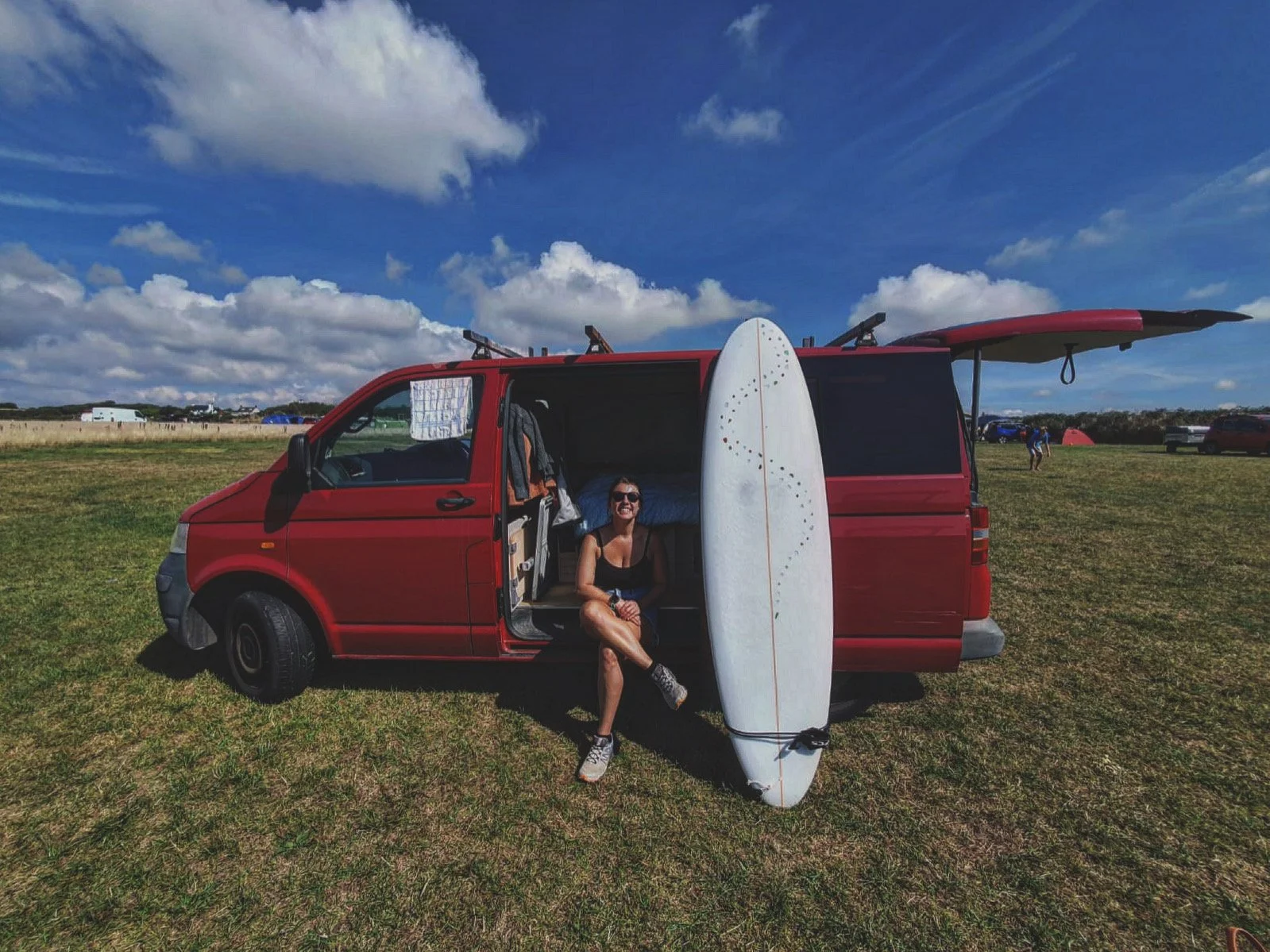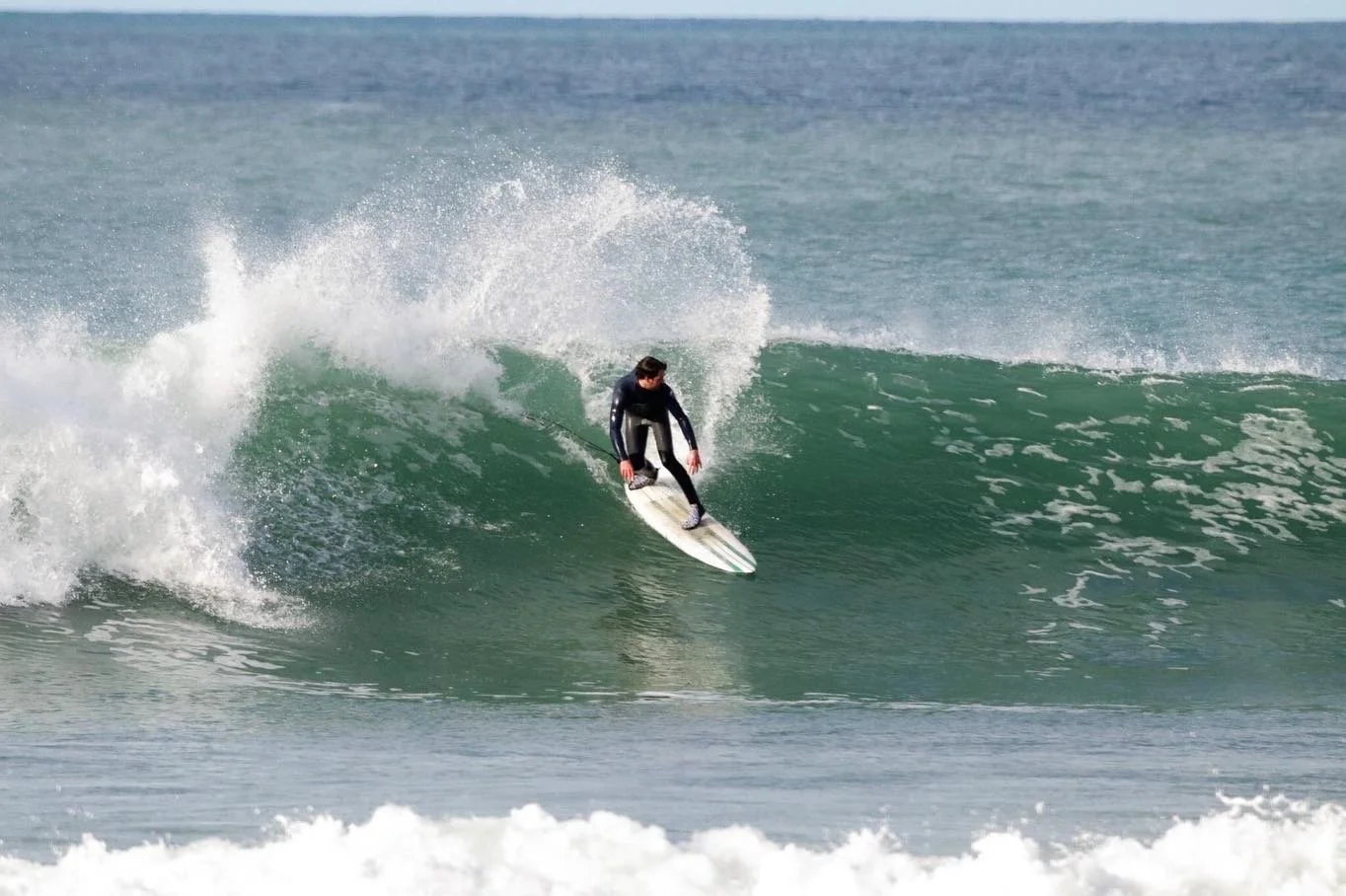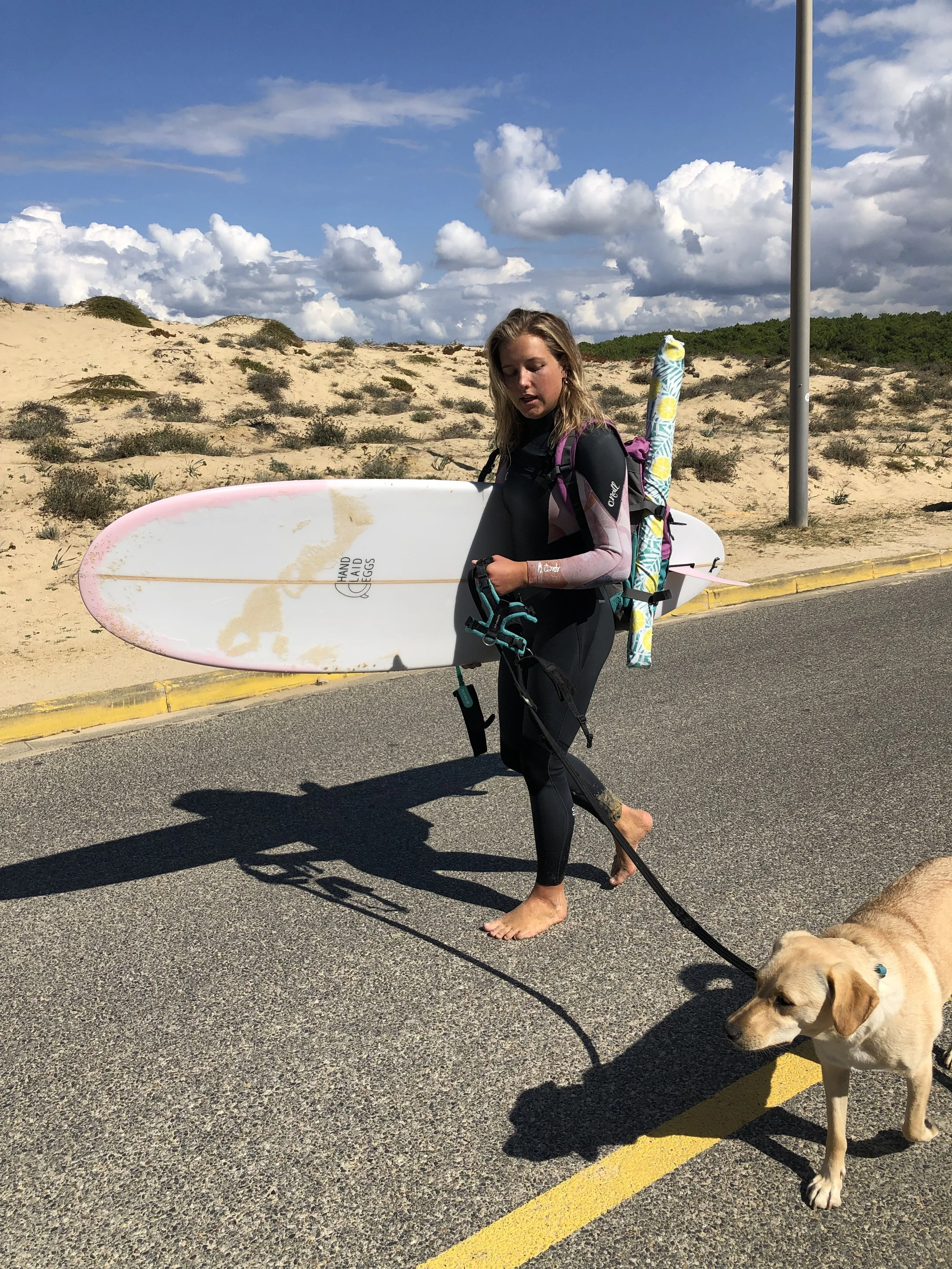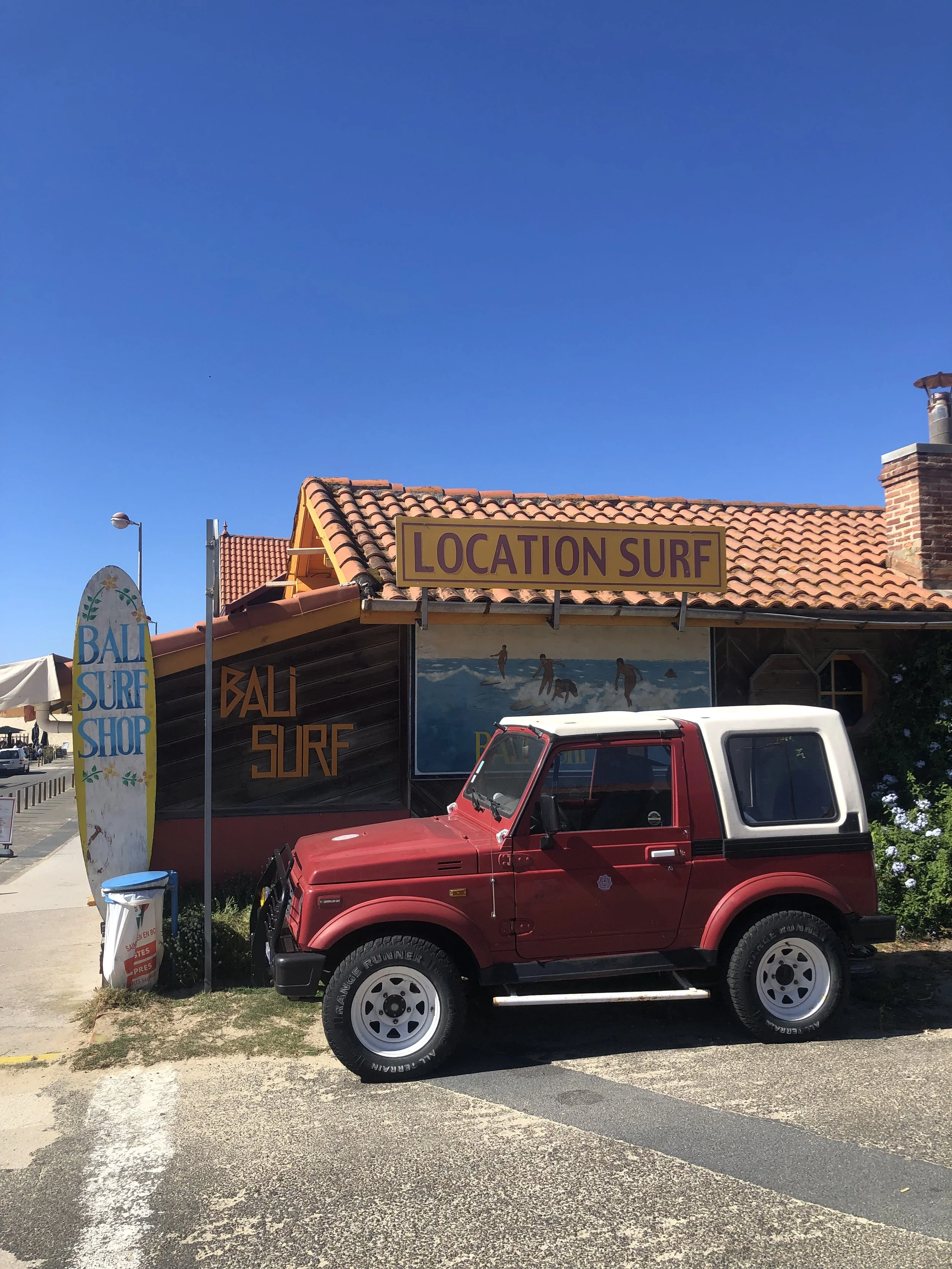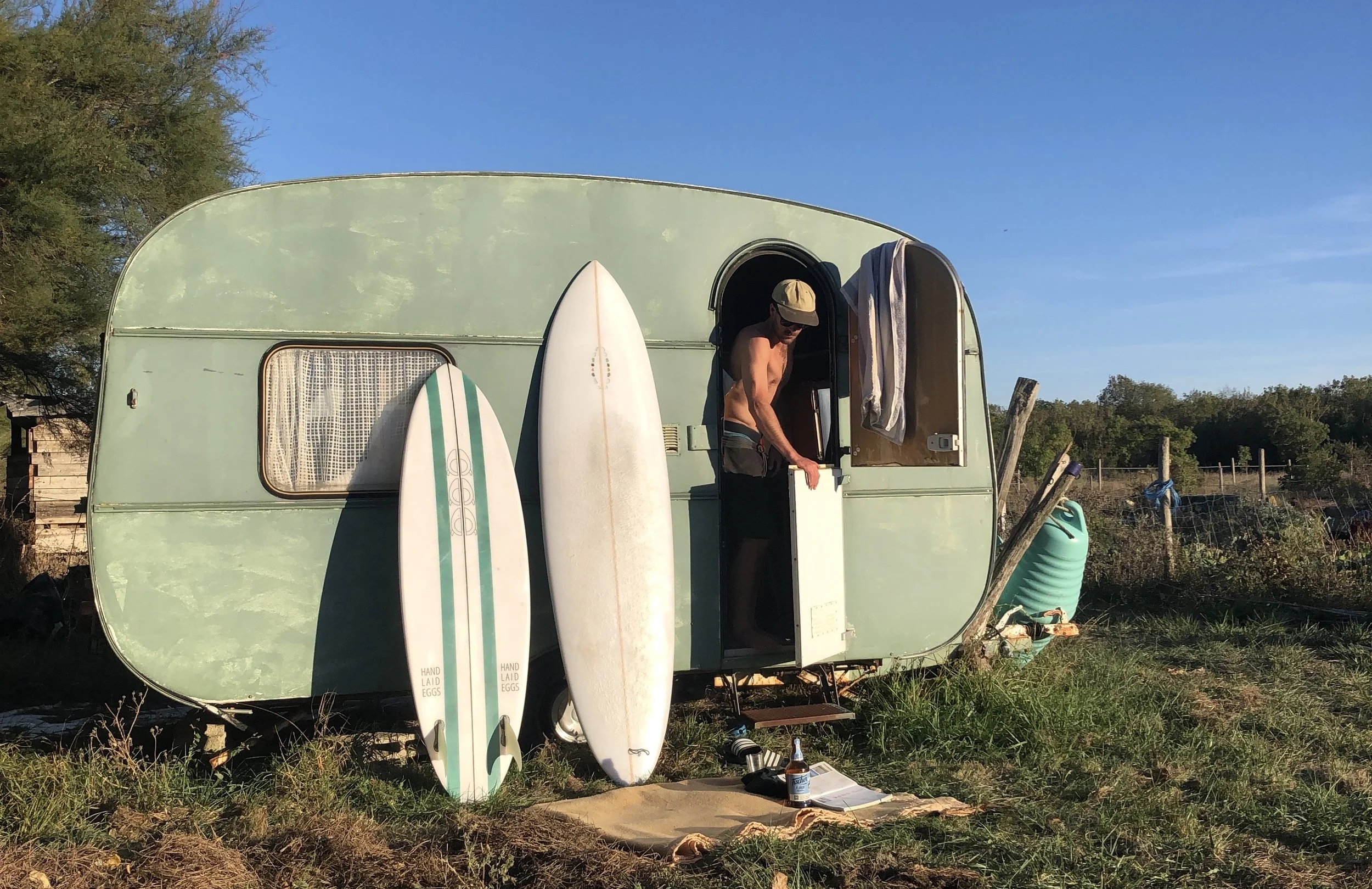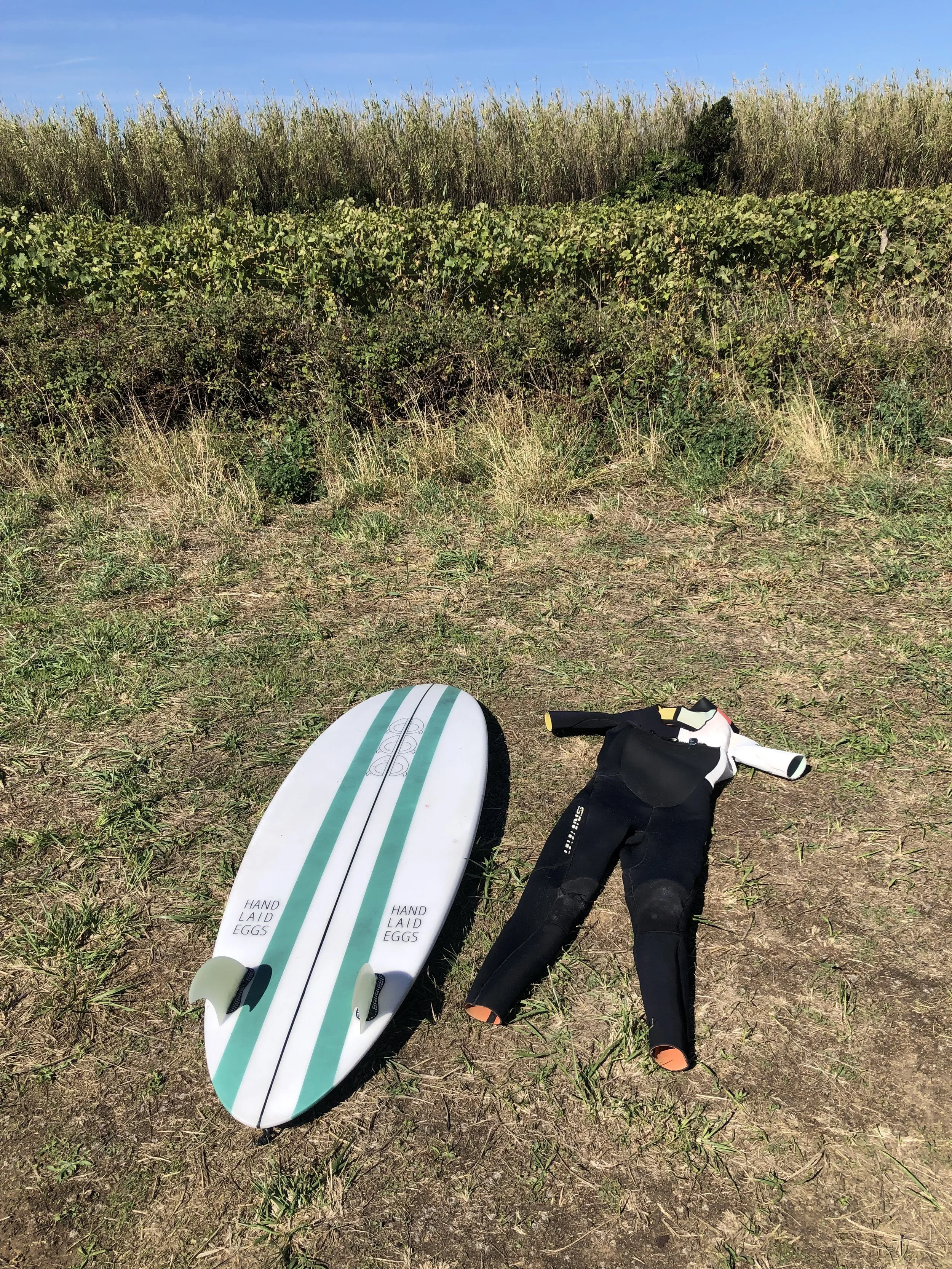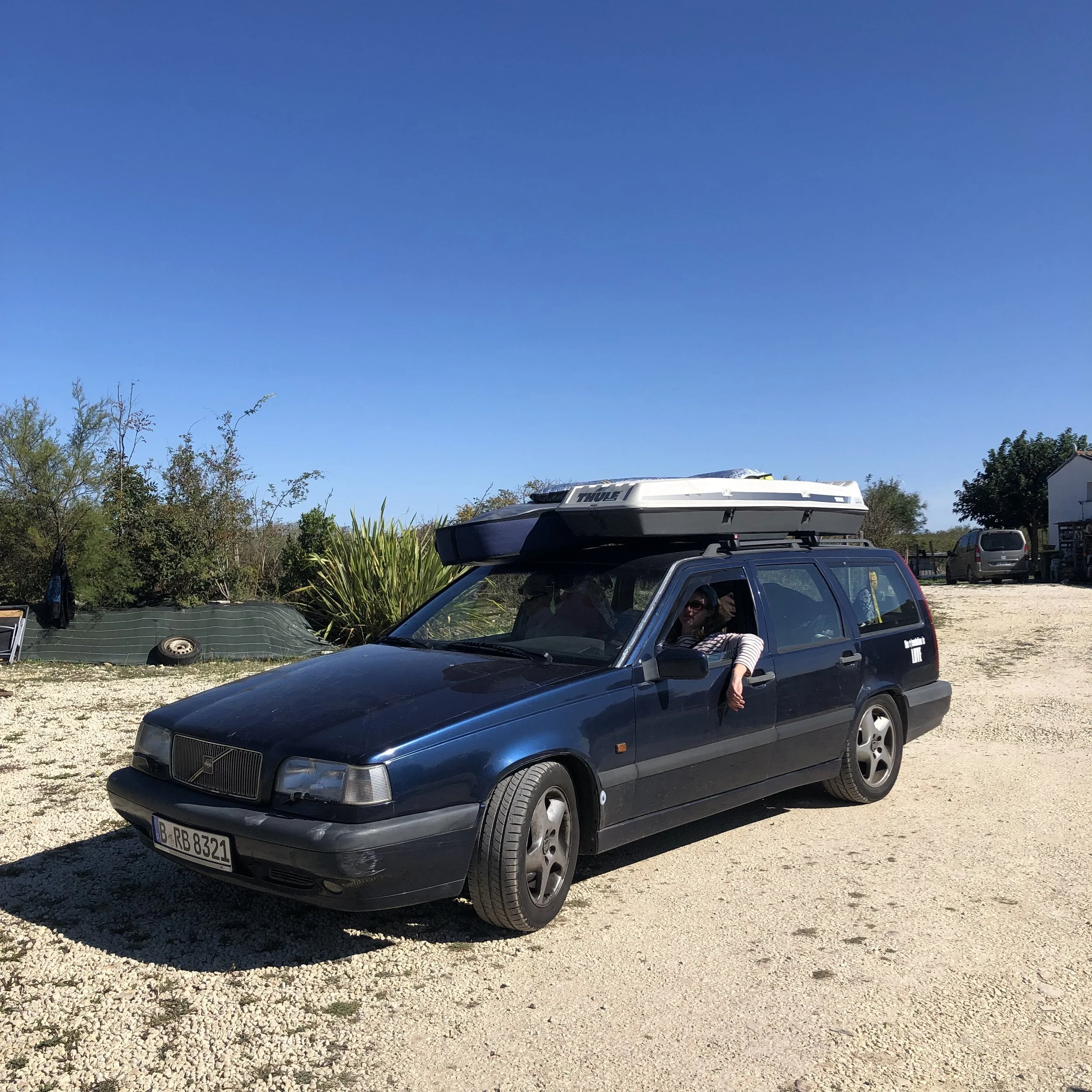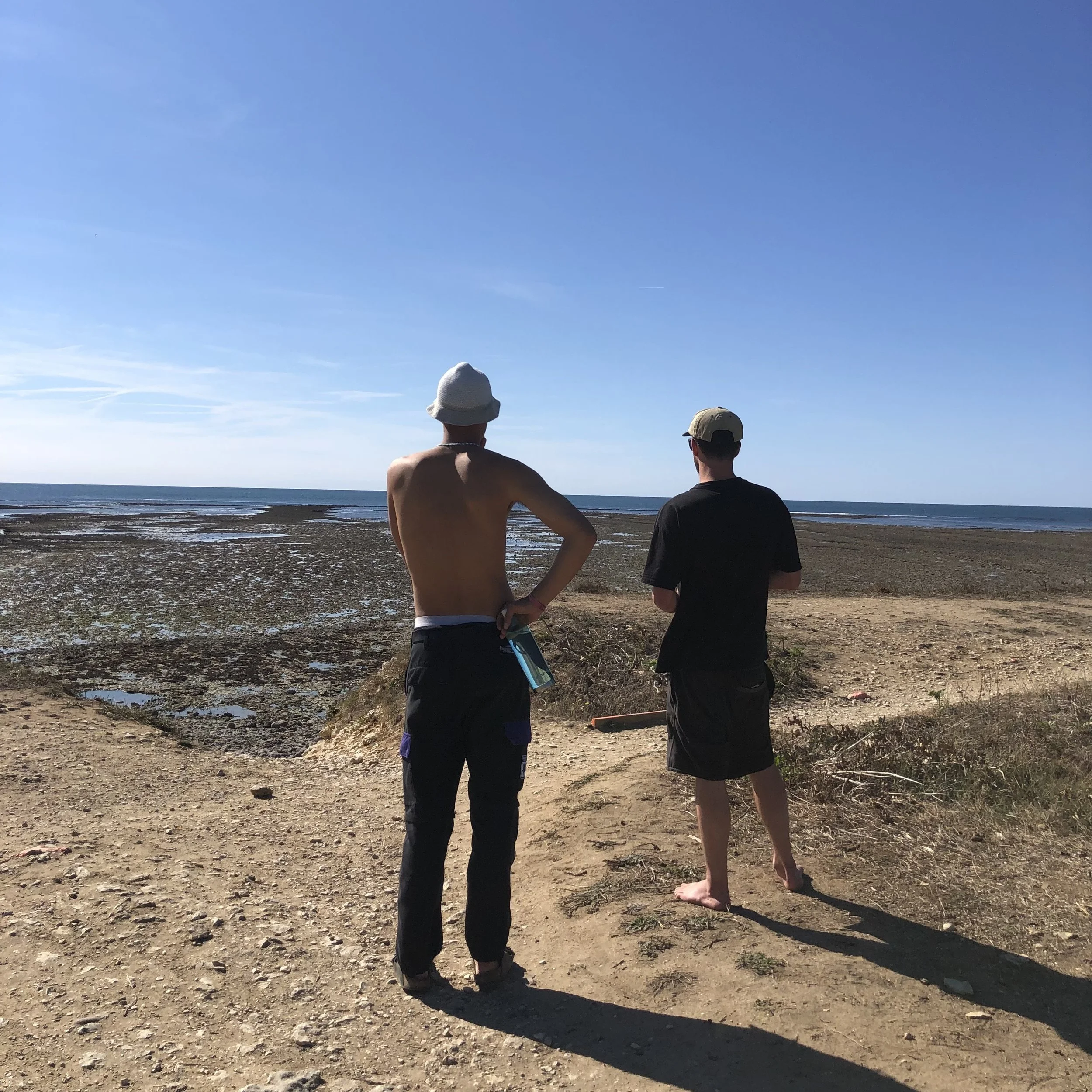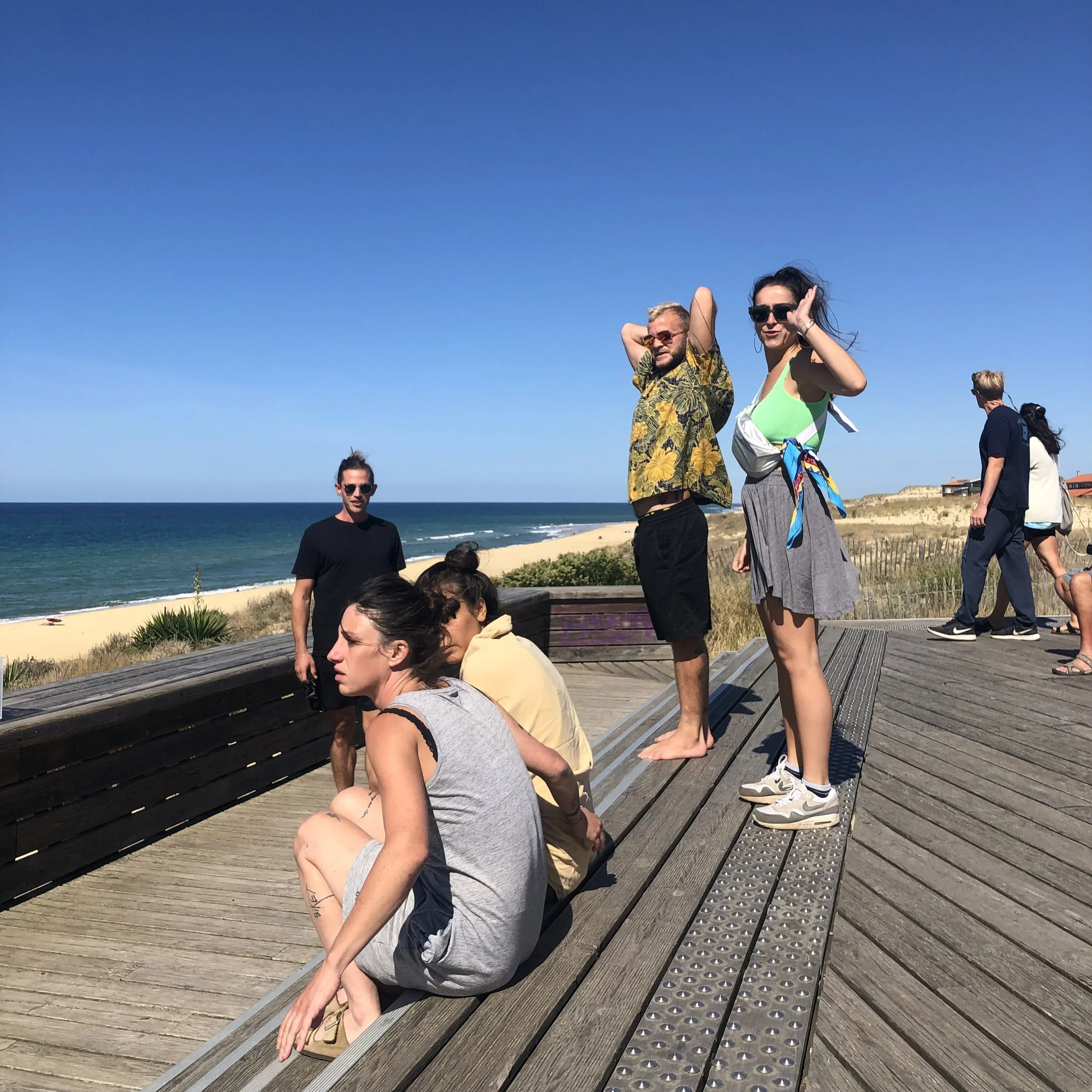Barrels and Baguettes
How to Surf France on a Budget
In this guide, Max, our board shaper at Hand Laid Eggs, shows you how to score waves on the continent, without it costing half a dozen.
The warmer waters and consistent waves of the west coast of France have long been a right of passage for UK surfers. Loading up the van or car and hopping on the ferry to escape the fickle surf and chilly waters of the English seas, the French coast can be a cheap and classic surf trip, without the fear of broken boards from careless baggage handlers.
WHEN DO YOU GO?
September or October. Avoid October half term, and do NOT be tempted to go in the French school holidays - a quick google search should give you the current dates.
To UK waveriders, the temperatures will be a pleasant surprise. The water temperature of the south west coast is usually a tepid 21 degrees at this time of year, and on land weather varies from a decent midsummer English day, to a withstandable 18 degrees overcast.
The overall conditions are win-win: either you get sunshine, with the smaller and cleaner waves that high pressure systems bring, or you get low pressure storms and wetter conditions, but larger and more powerful waves.
Coming out of the busy season, similar to that of Cornwall, the local residents and the strict parking rules are generally relaxed to those looking for a free place to sleep. Whilst it’s no #vanlife, France has a huge motor home community. The majority of these travellers are older residents - often parked up almost anywhere, sat outside on camping tables, eating products of the local region.
HOW DO YOU GET THERE?
On the boat of course, with a trusty sleeping vehicle. Driving out gives you options to move around weather- and surf-depending. Accommodation is expensive, and surfboards on planes? We’ve all seen the consequences.
There are two options for the ferry crossing, either Dover to Calais for a short crossing, which is super cheap on P & O if you get your drive times right and arrive early.
Or take the Plymouth - Roscoff. It’s a longer day or overnight sail, and more expensive, but it will put you right on the coast of northern France where there are less toll roads.
This is our top site for calculating fuel and toll costs - https://www.viamichelin.com/web/Routes
The trusty old Michelin man (even available in an app) will give you a full breakdown of costs and journey options - like avoiding tolls but adding to your journey time. Always cross reference this with Google Maps.
WHERE SHOULD YOU STAY?
With a little imagination, any motor can become a home. It doesn’t matter how pimped out your van is, how big or small, or even if you decide to bunker down the back of a Volvo. But be aware most decent car parks are limited, with a 2 metre height barrier seeming to be the standard in European tourist spots, with local governments seemingly fearful of a #vanlife infiltration.
There are a million apps for this, but Park4night (or search the app store) is a reliable source, with comments from previous #vanlifers, and various filtering search options.
When using apps, common sense should always prevail. Read the local signs and try to be up with curtains removed for at least 8am.
Alternatively, follow the rules and avoid a fine by paying for cheap campsites or official Aires, provided by the government. These are casual camping facilities, which cost a maximum of 15 Euro a night and will all have basic toilets.
Another option, if time is on your side - stick around and do some volunteering work in exchange for room and board. Using a website like Workaway, you can search for hosts by the coast, using keywords to find friendly local surfers offering short working hours and respectable accommodation for the night - or a camper van spot and amenities.
Cheapest option for those without car sleeping space? The board bag/sleeping bag combo never fails. Seek cover in the dunes using your boards as a makeshift roof, jump in, zip it up and bon nuit.
WHAT SHOULD YOU TAKE?
Surfboards
A midlength egg, small wave shortboard and a barrel worthy step up/big wave board if you are a hardy rider. For his last trip, our shaper Max took the 6’10 Royale, which was ideal for most conditions, and a 5’6 Twin Pin (pictured below) from his handmade quiver.
Equipment
Wetsuits - 3/2 or a shortie. If it’s late September/October and you’re up at the crack of dawn, or planning to surf the North/Brittany area, pack a 4/3.
Leash, fins and their tools for fitting, blocks of wax, reef boots, spare leash rope and/or leash, Solarez or a similar fast drying ding stick for quick repairs, sunscreen for face protection and zinc to cover your nose and under your eyes.
Vehicle
New UK sticker (this is a post Brexit change), a whole pack of equipment (hi-vis jacket, red triangle etc) required by French law to have in your car, vehicle documents including proof of insurance and ownership - have these in your glove box to avoid a pointless fine.
Don’t forget to change your headlamps to the right or use stickers. This, and the pack, can be bought on ferries for an extortionate price if you forget beforehand. Most insurance companies will have you covered for 90 days, there’s no need for a Green Card anymore.
Other
Surfing Europe guidebook, skateboard, frisbee, slackline…oh, and don’t forget your passport!
SPOTS
And to conclude this blog, without giving away too much local info, here are Hand Laid Eggs’ top three van surf destinations in France.
Ile d’Oleron
‘Quaint oyster island’ with rewarding point breaks and beachies. It doesn’t pick up quite as much swell as the Les Landes region (Hoessegor etc), so head here if it’s looking like a stormy onshore week. Don’t forget your reef boots, but expect them to get destroyed from long walks on oyster shells!
Contis-Plage
With everyone being drawn to the mega surf towns of Hoessegor and Lacanau, the smaller towns in between, like Contis, will offer a much more chilled vibe. With plenty of smiles and bonjours in the water, a short walk can often lead to a peak all for yourself.
La Tranche-sur-Mer
A small tourist town with point breaks in the right conditions, not far from popular sandy beach breaks like Les Conches, La Tranche-sur-Mer also has the flat day options of a fun skatepark and pump track.
We hope you’ve enjoyed this guide to France. Au Revoir, and please remember - one oeuf is never enough…

